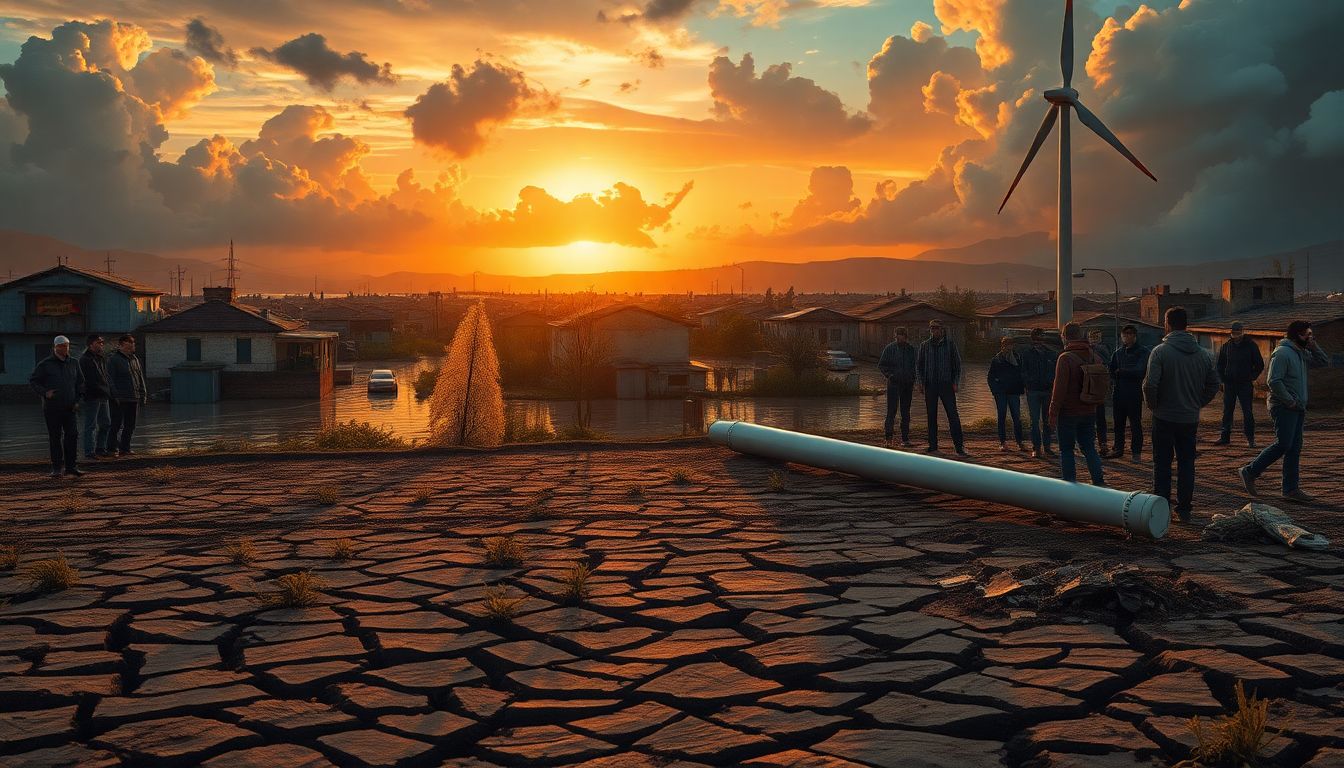
Climate change is no longer a distant threat; it's happening now. Its effects touch every part of our lives, from health to the economy and even our safety. Understanding how climate change impacts humans helps us see why we must act fast. Together, we can fight this crisis by spreading awareness, making smarter choices, and supporting policies that protect our future.
The Science of Climate Change and Its Global Trends
Understanding Climate Change
Climate change happens because of the greenhouse effect. Sunlight hits the Earth, and gases like carbon dioxide trap heat inside. This makes the planet warmer. Human activities, like burning fossil fuels, increase these gases. As a result, global temperatures rise, causing big changes worldwide.
Current Data and Projections
Recent reports show that the Earth's temperature has already increased by about 1.2°C since the late 1800s. Greenhouse gases continue to grow, mainly from factories, cars, and deforestation. If we keep going at this pace, temperatures could rise by 2°C or more by 2050. That only means more severe storms, droughts, and heatwaves.
Climate Change and Natural Systems
The ice caps in the Arctic are melting fast, leading to rising sea levels. This impacts coastlines around the globe. Ecosystems like coral reefs and forests are also suffering. When the ice melts, it disrupts important habitats and impacts wildlife that people depend on.
Impact on Human Health and Well-being
Rising Temperatures and Heat-Related Illnesses
Heatwaves are becoming more frequent and intense. People suffer from heat exhaustion and heatstroke. Recent heatwaves in Europe and North America brought record-high temperatures, putting vulnerable groups, like children and the elderly, at serious risk.
Spread of Diseases
Warmer weather allows diseases like malaria and dengue to spread into new areas. Mosquitoes and other disease carriers thrive in warmer climates, expanding their range. This leads to more illnesses in regions that never had these diseases before.
Food Security and Nutrition
Climate change hits agriculture hard. Droughts and floods destroy crops, making food scarcer. Regions like Sub-Saharan Africa face serious hunger because farms can't produce enough food. This can create shortages and push prices up.
Environmental and Socioeconomic Consequences
Displacement and Climate Refugees
Sea levels are rising, threatening low-lying islands and coastal cities. Many residents are forced to move away from their homes. Small island nations, like the Maldives, face the risk of disappearing beneath the waves. Climate refugees increase, and their displacement causes social challenges.
Economic Impacts
Natural disasters cost billions in damages each year. Infrastructure, homes, and businesses face destruction. Industries like farming, fishing, and tourism suffer big losses. These shifts threaten people's jobs and livelihoods.
Loss of Biodiversity
Many species are struggling to survive. Some are already extinct because they can’t adapt fast enough. This loss affects ecosystems that provide clean water, air, and food for us. Biodiversity is vital, yet it’s under serious threat from climate change.
Climate Change and Global Security
Increased Conflict Over Resources
As water and land become scarcer, conflicts grow. Communities compete for these precious resources. Some conflicts in regions like Africa and the Middle East worsen as climate impacts tighten their grip.
Political Instability
Mass migration caused by climate disasters leads to social tensions. Countries face pressure from new arrivals seeking safety and resources. Such tensions can lead to unrest and crisis situations.
International Cooperation and Policy Responses
The Paris Agreement is a global effort to cut emissions. Countries pledge to reduce carbon output and improve climate resilience. But much more must be done. Strong policies can help protect vulnerable communities and slow down climate change.
Actionable Strategies for Mitigation and Adaptation
Individual and Community Actions
We can reduce our carbon footprint by conserving energy, walking, biking, or choosing public transport. Supporting local clean energy projects makes a big difference too. Small actions add up to big change.
Government and Corporate Responsibilities
Governments need to craft laws that cut emissions and protect the environment. Investing in renewable energy, green infrastructure, and climate-friendly policies helps. Companies can switch to sustainable practices, reducing pollution and waste.
Innovation and Technology
Advances in wind, solar, and hydro power provide cheaper, cleaner energy. Carbon capture keeps greenhouse gases out of the air. Better farming techniques help soil stay healthy. Innovation is key to fighting climate change.
Conclusion
Climate change affects our health, economy, security, and the very ecosystems we depend on. It’s urgent that we act now. Everyone has a role, from individuals to governments and corporations. We need smart choices, strong policies, and new technologies to secure a safer future. Our planet’s future depends on what we do today. Let’s take action—our future selves will thank us.



0 Comments